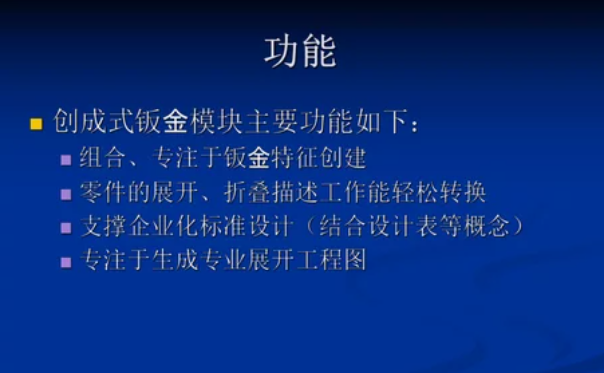CATIA DMU License Overview CATIA DMU (Digital Mock-Up) licenses are specialized modules within Dassault Systèmes' CATIA software suite, designed to support digital prototyping, simulation, and analysis of large assemblies. These licenses enable engineers to perform tasks such as 3D model simplification, interference checking, motion simulation, and assembly process validation—critical for industries like automotive, aerospace, and heavy machinery. Unlike standalone products, CATIA DMU licenses are typically integrated into the broader CATIA ecosystem, requiring a valid base license (e.g., CATIA V5 or CATIA 3DEXPERIENCE) to function.
Key CATIA DMU License Types DMU licenses are modular, with each module addressing a specific aspect of digital mock-up workflows. Common types include:
-
DM2 (DMU Auditor): Core module for managing and auditing DMU data. It supports tasks like model comparison, annotation, and report generation, and is often required for accessing advanced DMU features.
-
DMO (DMU Optimizer): Focuses on model simplification to reduce data size while preserving critical design details. Key functions include silhouette creation (for envelope generation), feature removal, and volume calculation—ideal for optimizing large assemblies (e.g., automotive chassis) for collaboration or simulation.
-
FIT (DMU Fitting Simulator): Simulates assembly/disassembly processes to validate design feasibility. It generates collision-free paths, measures clearance, and identifies potential interference issues—useful for ergonomic design and maintenance planning.
-
KIN (DMU Kinematics Simulator): Enables motion simulation of mechanisms (e.g., engines, robotic arms) by defining joints, constraints, and motion paths. It checks for collisions, calculates minimum clearances, and visualizes movement trajectories.
-
SFD (System Functional Description): Used in early design phases to create functional models of systems (e.g., electrical, mechanical). It integrates with DMU tools to ensure system-level compatibility and performance.
Licensing Models for CATIA DMU CATIA DMU licenses follow Dassault Systèmes' standard licensing framework, with two primary models:
-
Node-Locked License: Tied to a specific computer’s hardware fingerprint. Ideal for single-user environments or offline use (e.g., remote workstations). The license is permanently assigned to the machine and cannot be shared.
-
Floating License: Hosted on a central server, allowing multiple users to share a pool of licenses. Users "check out" a license when starting CATIA and "return" it upon closing. This model optimizes resource utilization for teams, as idle licenses are automatically released for others to use.
-
Subscription vs. Perpetual: Subscription licenses (monthly/yearly) offer flexibility and include access to updates, technical support, and cloud services. Perpetual licenses require a one-time purchase with optional annual maintenance (for updates and support). Many enterprises opt for subscriptions to avoid large upfront costs and adapt to changing team sizes.
Obtaining and Managing CATIA DMU Licenses To acquire CATIA DMU licenses, organizations can:
-
Purchase Directly from Dassault Systèmes: Visit the official website, select the desired modules (e.g., DM2 + DMO), and complete the order process. This ensures access to genuine software and official support.
-
Use Authorized Resellers: Partner with certified resellers (e.g., Tech Soft 3D, GoFar) for personalized guidance, bulk discounts, and local support. Resellers often help tailor license packages to specific team needs.
-
License Management Best Practices: Use tools like Dassault Systèmes' License Server (DSLS) to monitor usage, identify idle licenses, and optimize allocation. For floating licenses, implement "dynamic reservation" (via CATIA's "Tools > Options > Licensing" tab) to prioritize critical users/tasks and reduce waste. Regularly review license usage reports to adjust packages and cut costs.
Pricing Considerations CATIA DMU license prices vary by module, version, and licensing model. For example:
-
Annual Subscription: A single-user DM2 license may cost around $2,000/year, while a floating DMO license for a team could range from $5,000–$15,000/year (depending on the number of users and modules).
-
Perpetual Licenses: These are more expensive upfront (e.g., $10,000–$30,000 per module) but include maintenance costs (typically 20% of the license price annually). They are suitable for long-term, stable teams.
-
Volume Discounts: Enterprises purchasing multiple licenses often receive tiered discounts (e.g., 10–20% off for 10+ licenses). Custom quotes are available for large-scale deployments.
Common Challenges and Troubleshooting -
"License Invalid" Errors: Caused by server downtime, network issues, or expired licenses. Verify the server connection (check DSLS status), ensure the license file is valid, and restart CATIA.
-
Missing DMU Modules: If DMU tools are unavailable, confirm that the correct DMU license is assigned to the user in the License Server. Re-authorize the license if necessary.
-
Optimizing License Usage: Idle licenses (left checked out for extended periods) waste resources. Use tools like LicOMS to set idle timeouts (e.g., 2 hours) and auto-release licenses. Dynamic reservation ensures critical users always have access.
